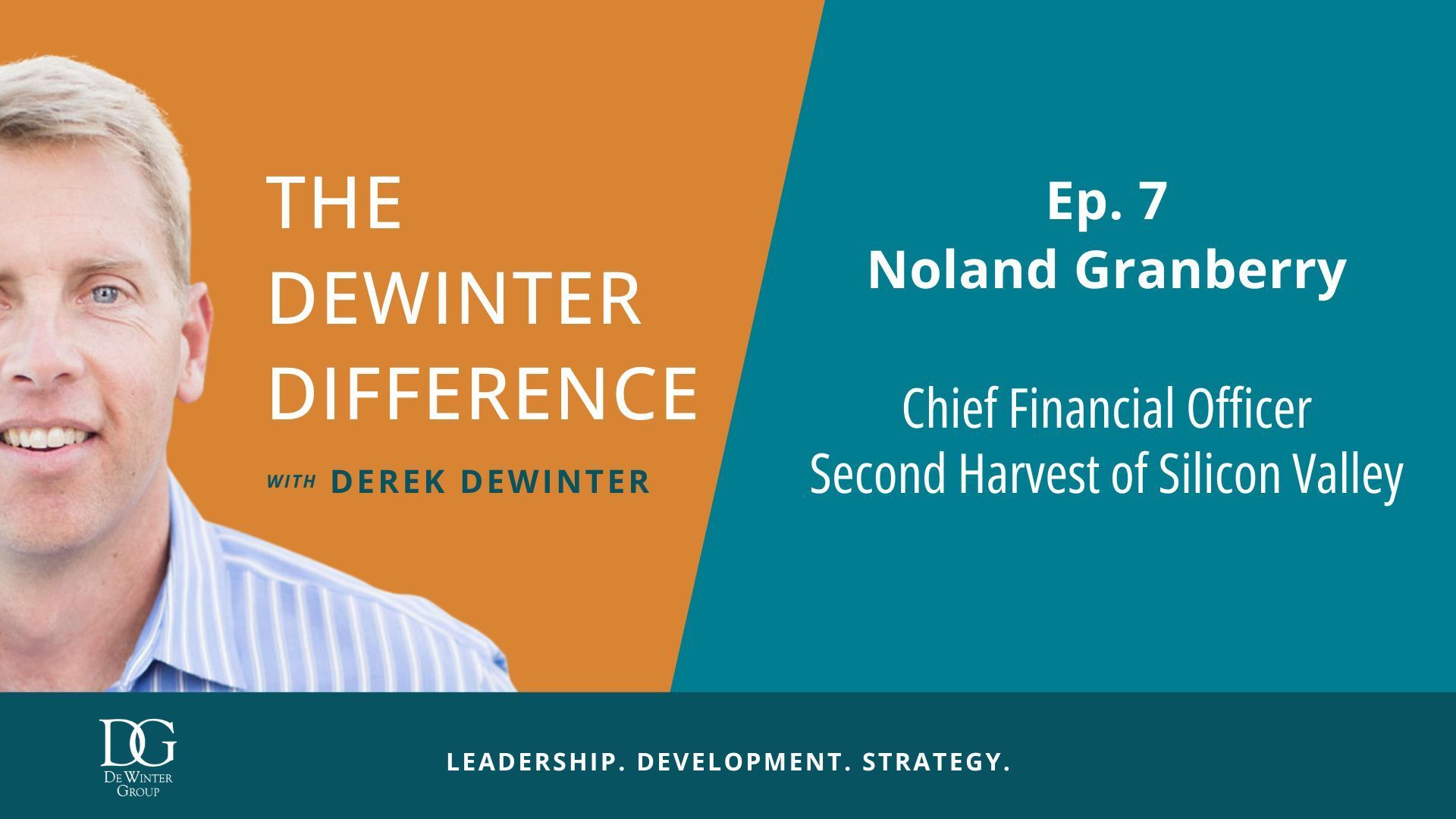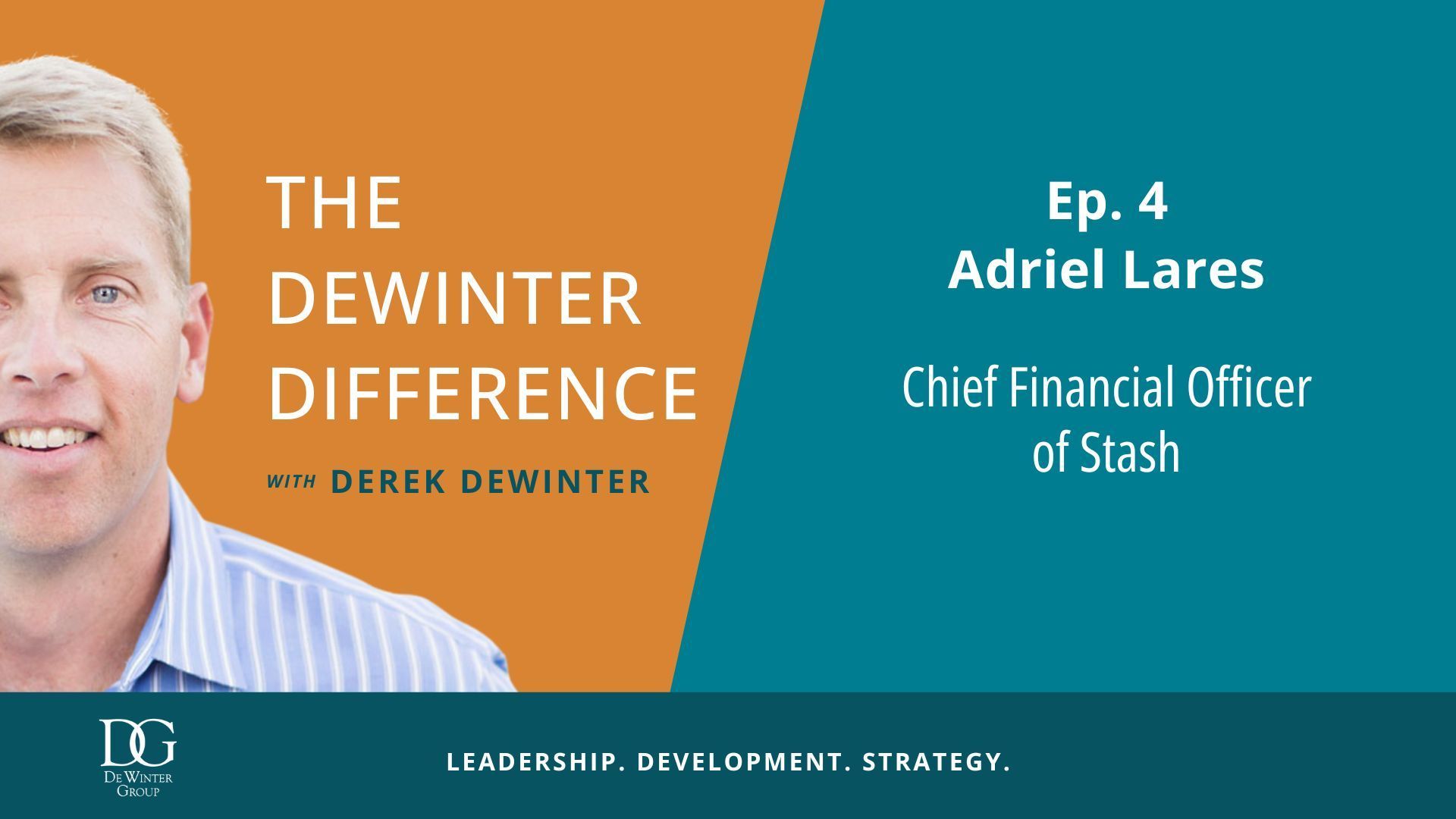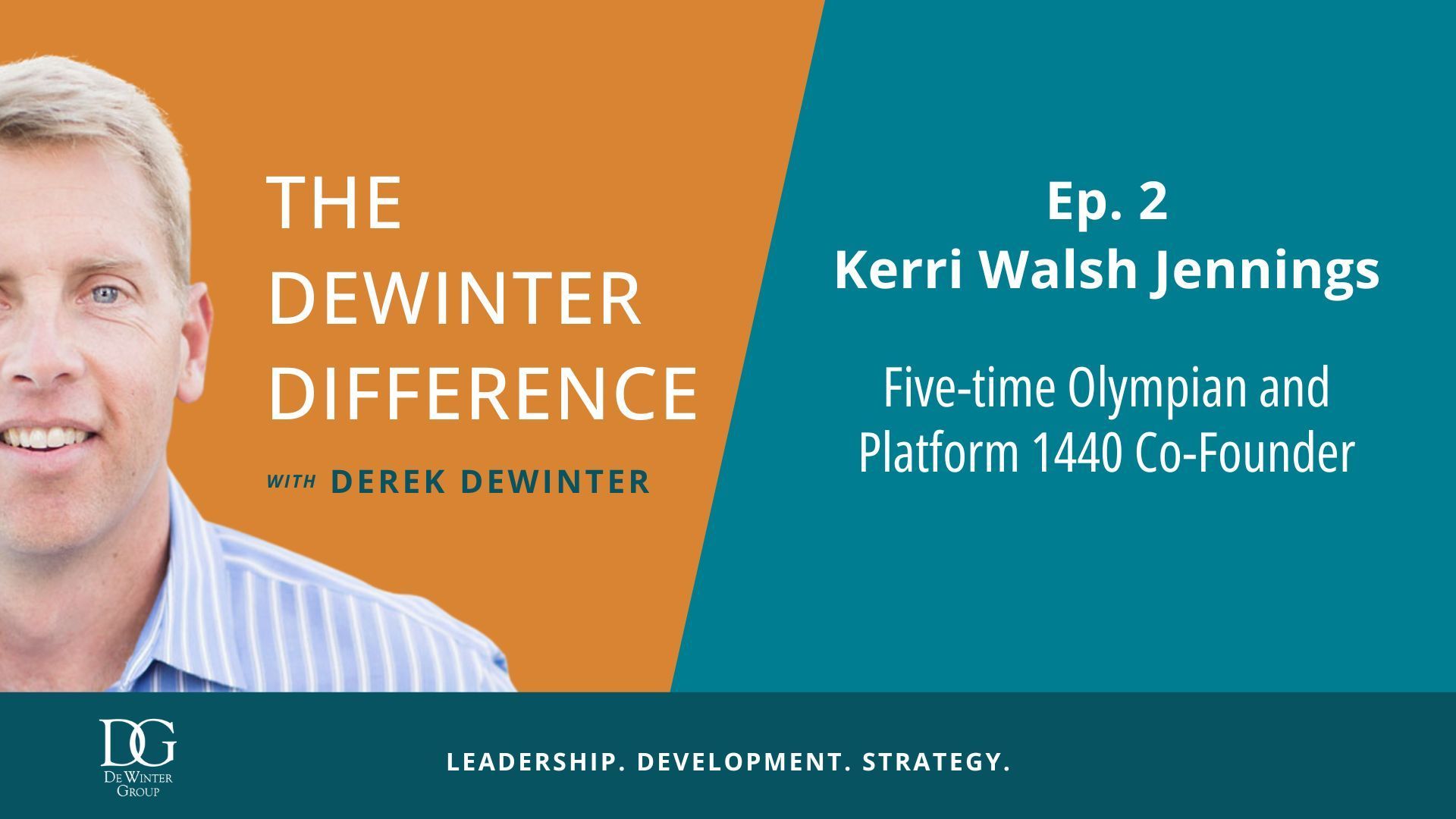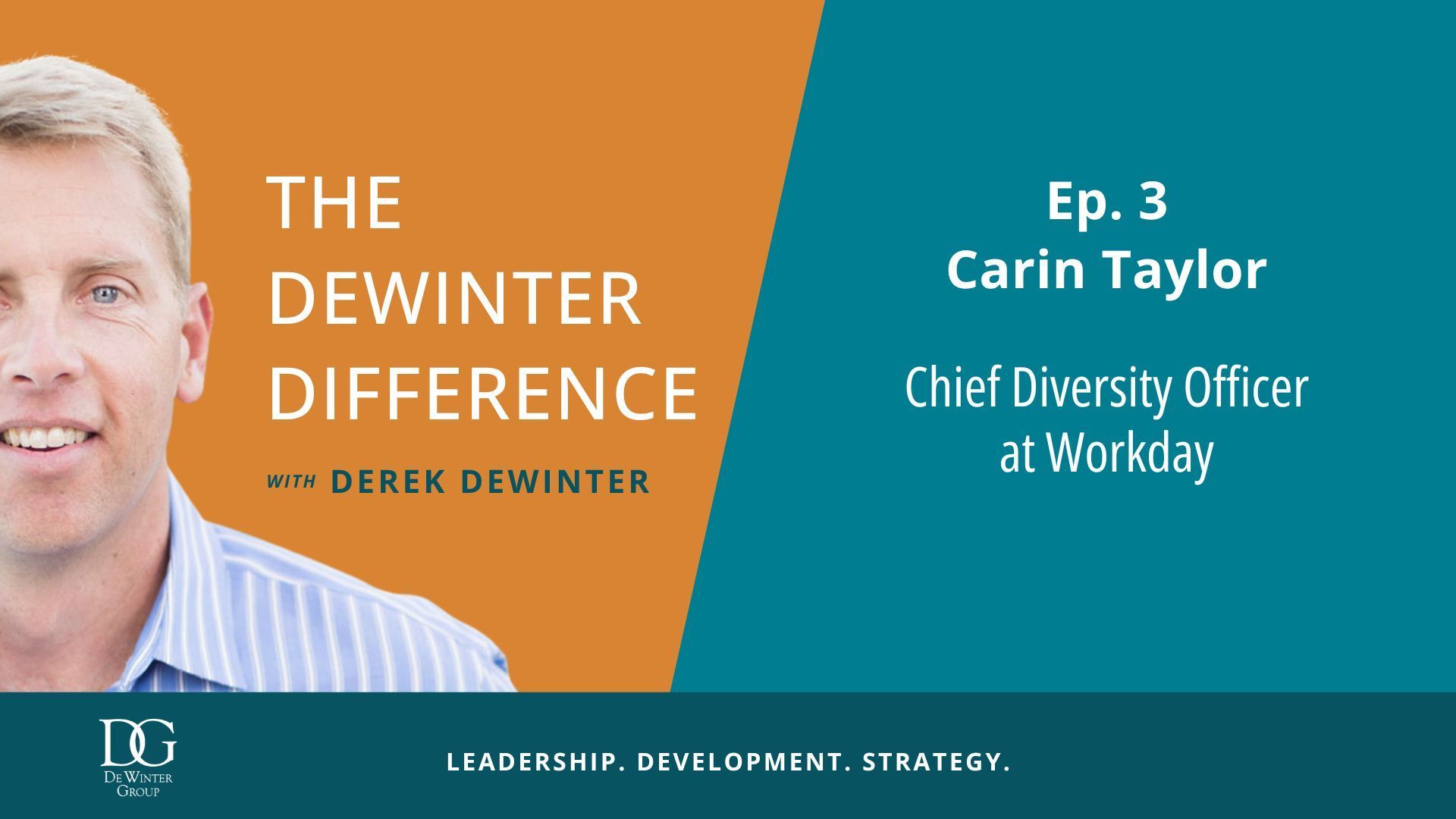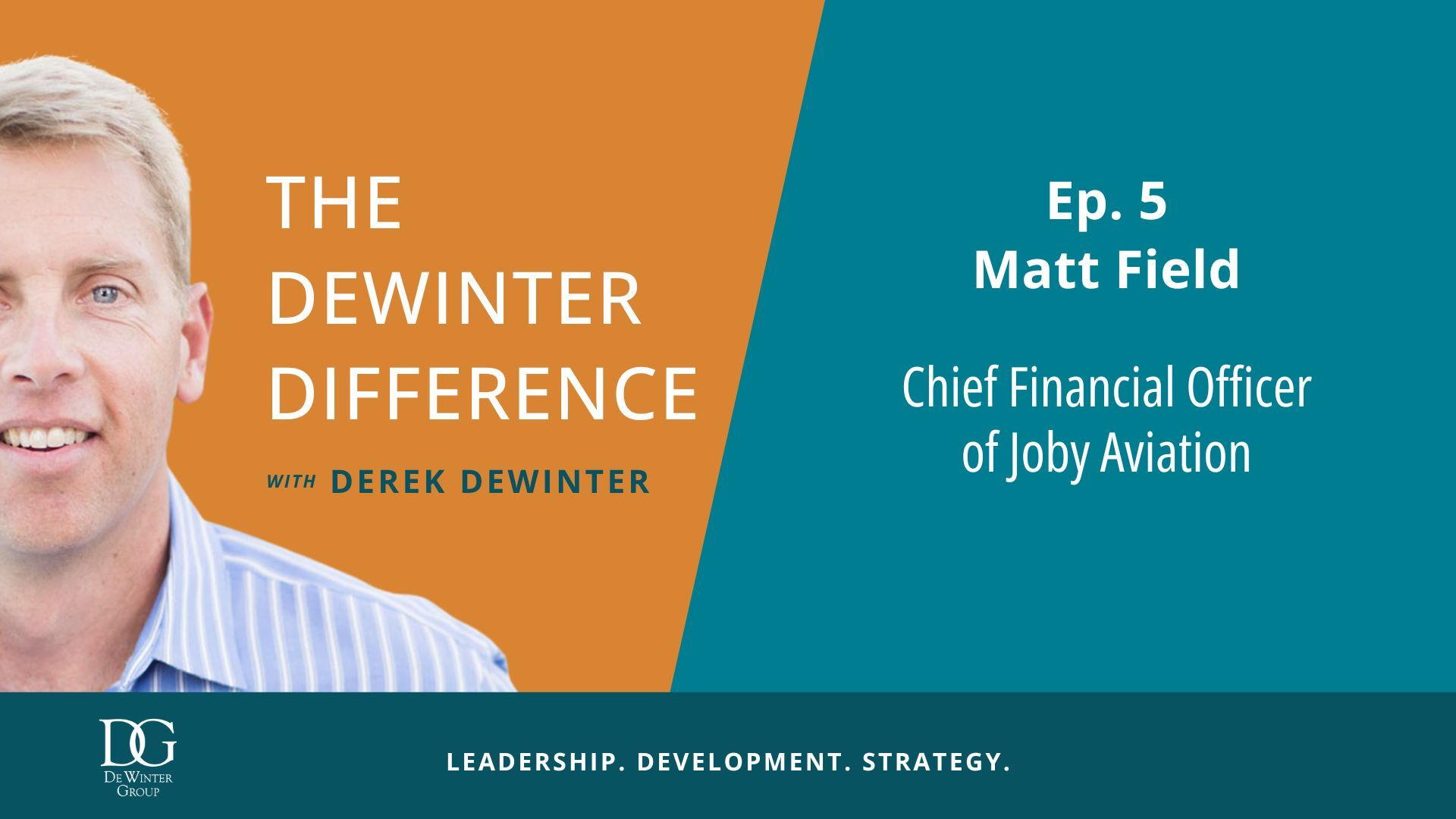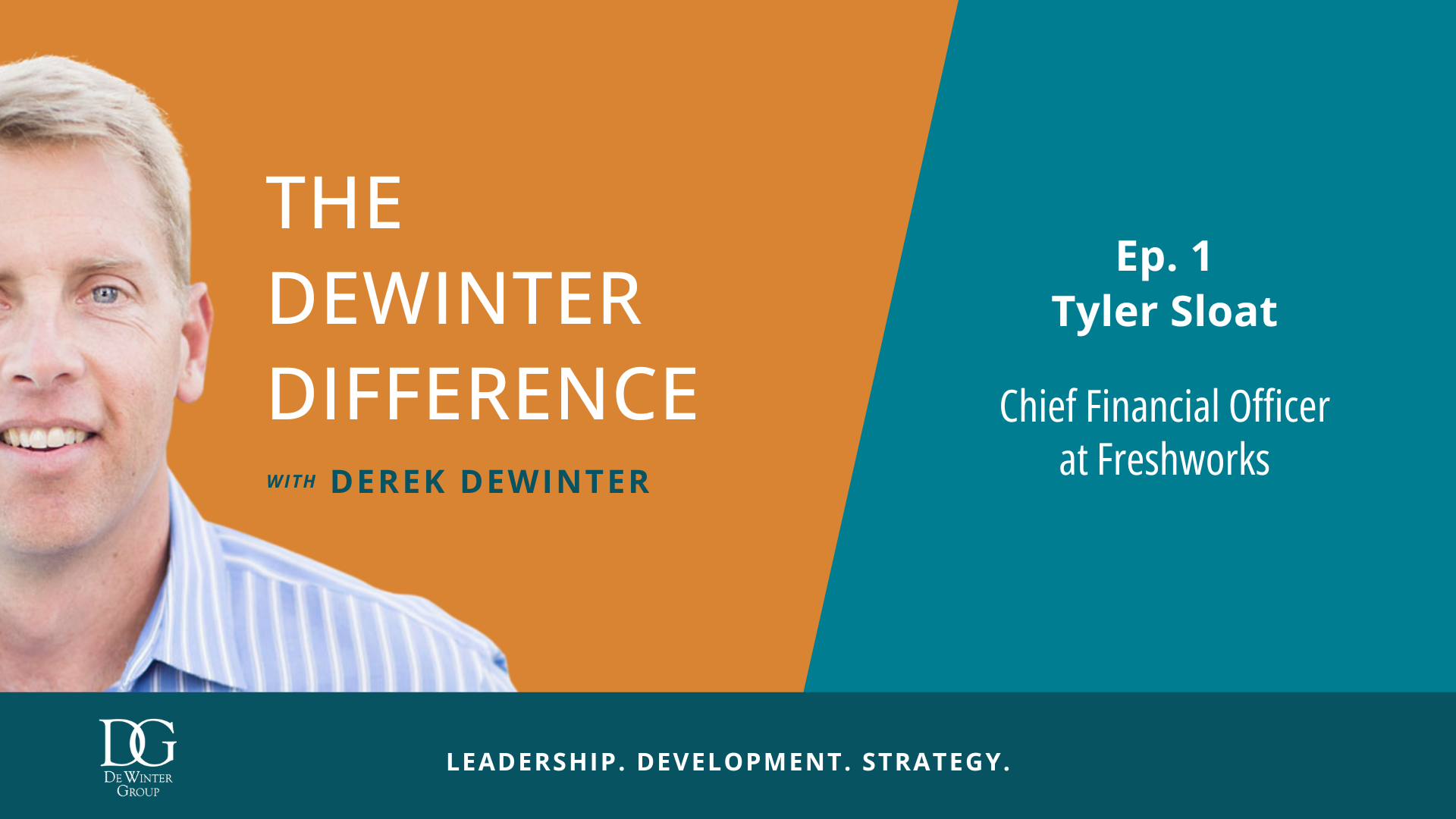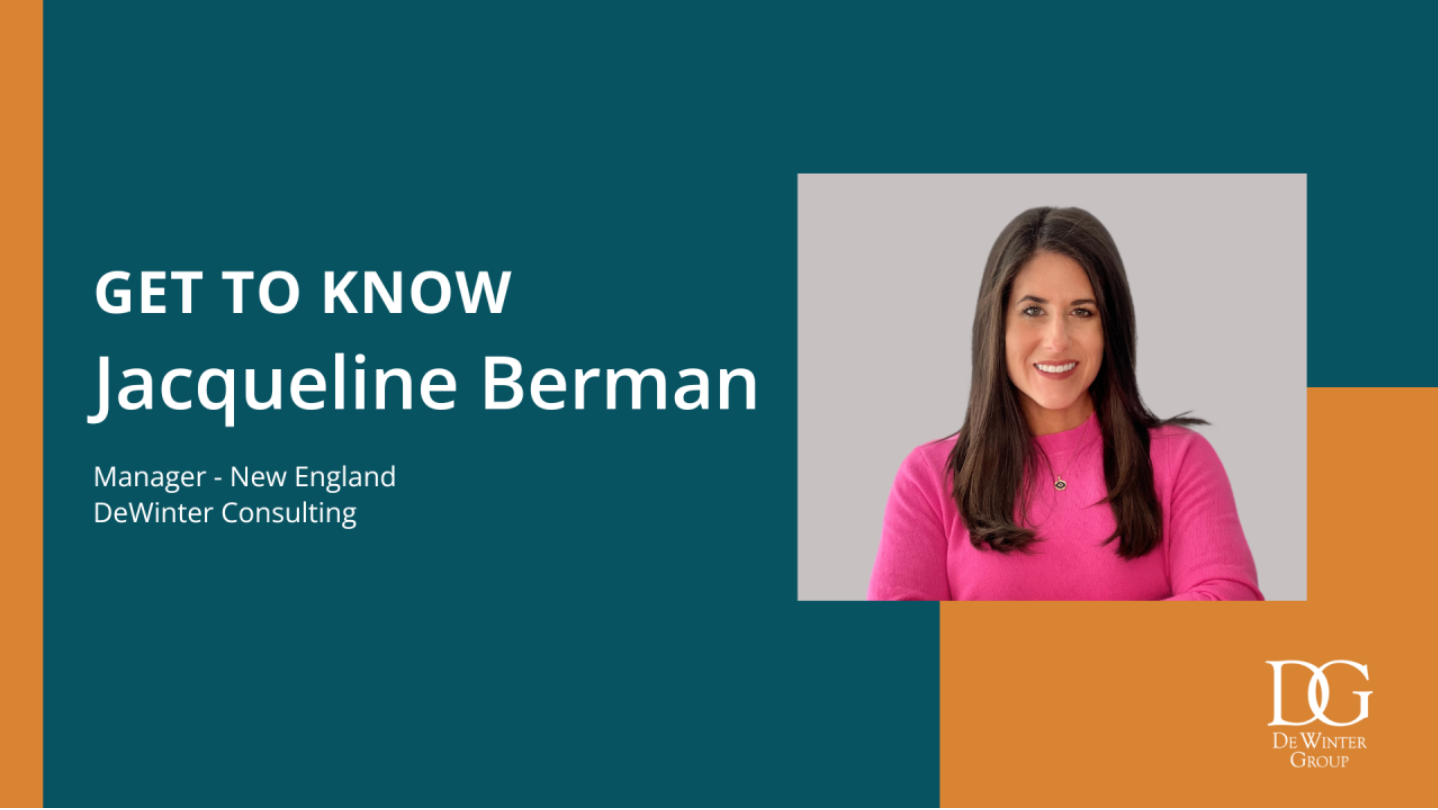The DeWinter Difference: Jessica Aguirre, Emmy Award Winning Journalist
About The Episode
In this episode of the DeWinter Difference, Derek sits down with Jessica Aguirre, Emmy Award-winning Journalist and News Anchor with NBC Bay Area News. Hear Jessica shares stories about her career journey, starting as a young journalist in Miami to becoming an Emmy-award-winning journalist and News Anchor with NBC Bay Area News, the changes she’s seen unfolding in the news industry, and the importance of listening.
Learn more about the DeWinter Difference podcast and share your thoughts and comments at DeWinterGroup.com/dewinter-difference
About Jessica Aguirre:
Jessica Aguirre is the 5, 6 and 11 p.m. evening anchor at NBC Bay Area News and an Emmy award-winning journalist. Jessica has been a primetime, evening anchor, in the Bay Area for over 20 years.
In addition to anchoring the evening news, Jessica is the co-host of NBC Bay Area’s Race in America: The Conversation alongside Marcus Washington. The show explores racial equity and social injustice and attempts to bridge the divide between backgrounds and generations.
Jessica began her career at the Spanish Language network, Univision, while attending the University of Miami. Before arriving in the Bay Area in 1998 she anchored and reported in Los Angeles and Miami, earning Emmy awards for her series on the struggles of migrant children and for her investigative work on child molesters as well as an Associated Press award for her series chronicling the struggle of boat people fleeing Cuba. During her tenure at NBC Bay Area Jessica won an Emmy for her poignant series, on the emotional journey of an East Bay transgender teen and her efforts to preserve her fertility before undergoing sex reassignment surgery, another Emmy for her live coverage of the "Ghostship" warehouse fire in Oakland and for field anchoring from the deadly Sonoma and Napa county firestorms.
Most recently Jessica was inducted into the National Academy of Television Arts & Sciences Silver Circle for twenty-five years of excellence in television journalism.
Follow her on Twitter @JessAguirreNBC
Listen now at the streaming sites listed.
Learn more about the DeWinter Difference podcast here and share your thoughts and comments below.
Episode Transcript
This transcript has been edited for length and clarity.
Derek DeWinter:
Welcome to our listeners who are tuning into the DeWinner Difference, an audio podcast where I spend a bit of time with incredible people I've known for years and you get to listen in. I hope that our conversations are unique, insightful, and short enough to hold your attention, but long enough so that you get some great takeaways that you can apply in your career, life, and relationships.
Today, I am very, very pleased to speak with my friend, Jessica Aguirre. Many of you will immediately recognize the name, and given what she does for a living, you can pair that visual with this audio. Jessica is an Emmy Award-winning news anchor for NBC Bay Area News. She's a rock star in every sense of expression and has interviewed Olympic athletes, luminaries, presidents, and many more.
As a journalist, she's researched and reported on countless injustices, and as a person, she's witty, funny, genuine, and will pull no punches. Jessica, thanks for taking the time in your very, very busy schedule to chat.
Jessica Aguire: My gosh. What a nice introduction. Thank you, Derek. Of course. I sent out alerts across all platforms yesterday that no matter what happened if you called me, I was supposed to be ripped off the set and come over exactly so that I would take your call at any moment. I told Joe and, you know Mexican president Andres Manuel Obrador today, like. I cannot go to this summit with you people because I am going with Derek instead, super Derek. So I'm sorry. I could have helped with those relations, but no, I'm here with you. Don't worry.
Derek DeWinter: The world suffers because of your decisions.
Jessica Aguire: I'm putting you first. You are my priority. Yes.
Derek DeWinter:
Thank you. Well, let's start by doing something fun. We're gonna go back into the time machine. You're 10 years old, walk into the kitchen and tell anyone who can listen or hear you that one day I'm going to be an Emmy award-winning news anchor.
I doubt this happened, but a little tiny part of me thinks that you actually could have done that. In the real world, tell us a little bit about how the journey began for you to get from there to here.
Jessica Aguire: I did do a little newscast when I was a kid. That is true we used to play newscaster all the time, but you know for us we were like my parents are immigrants to this country They learned to speak English watching TV. So the TV I mean, my, you know, if I think back to my earliest memory is with the TV being on, my mother smoking a cigarette.
Those, that's exactly how we lived in our house, right? The TV was always on. And my parents always had the news on, so it was something that kind of was always an undercurrent in the background. In fact, I mean, I know this sounds weird. I actually remember watching the Watergate hearings. I used to sit in front of our black-and-white TV and watch Watergate. My mom was always like, my mom has a very cute, heavy accent. She'd always be like, you're a very strange child. Very strange. You know so we were always watching the news very much into but you know what? I thought I was going to be a dancer. I love dancing. I grew up dancing, taking ballet, and all these kinds of things.
That bubble burst though, you know, I was always a prolific reader, and didn't happen. I went to college, you know, the first person in my family to go to college, I didn't really know what I wanted to do. And again, one night watching TV with my mom, we're watching the news. My mom looks like we're having this whole discussion about what am I going to do with my life?
My mom looks at the TV and sees an anchorwoman on TV. She literally says to me, you should do that. You should be talking like that lady on TV. You're very nosy. You talk a lot and she goes, and you're in everybody's business all the time. She was right. It's like the perfect job for me. Right.
Always asking questions. I'm always having fun. That's kind of what happened. I changed my path at the University of Miami, started working at a television station when I was a junior, and have never left the newsroom ever, ever, ever, ever.
Derek DeWinter: Is that one of those first times where you can see what you can be type of moments?
Jessica Aguire: I think I think it was a little bit of that, but also, the truth is, there weren't any people like me on TV. There was one Latina anchorwoman in Miami. At that point, we lived in Miami where it's, you know, 98 percent Hispanic. She was like this trailblazer, and I was like, really? Do you think I could do that?
That really kind of set the path and then that became for me what I loved about it right off the bat working in a newsroom was I loved the adrenaline of it and I also love I love seeing things for myself I'm a little bit mistrustful and unless I see it myself and I don't understand it myself I can't really wrap my head around it.
So I loved especially in those days I mean we're talking, you know late 80s and early 90s when networks had huge budgets and they didn't really have you know the level of correspondent everywhere. The TV stations that I worked for, I mean, they would put you on a plane for anything that happened any place in the country.
I loved that. Living out of a suitcase in my car.
Derek DeWinter: That's awesome. There, getting to the place that you are, there are challenges too numerous to mention, but can you think of a couple or one that's like boy, this could have derailed me, but it didn't? Like, some big seminal moment that,
Jessica Aguire: I think the big thing was like, first of all, there weren't any women. There weren't a lot of women like me on television, you know and I you know didn't really I wanted to be a reporter, but I didn't look like a reporter I looked a lot like the lady in FlashDance, you know it's true I had like a you know, I was wearing leggings are back, but I wore them back then.
I have super curly hair and I just didn't have the right look. Believe it or not, it was one of the other anchor women at the station who said you need to look like the job you want and right now you look like a stripper. You need to really get your look together. I went and I spent all my money at Ann Taylor.
I remember that I came back with this beautiful suit that cost me my entire salary and that kind of changed how I saw myself, what the possibilities were for myself. That was a big thing then, you know, the constraints of actually living in a very Latino upbringing, you know, I was a reporter, like covering world events, living with my parents.
So, my parents would often call me. I remember this clearly, I was covering one of the Miami riots, and my parents called me on the phone in the middle of a riot to tell me that my dad's coming to get me because it's unsafe where I am. So they were routinely planning to come pick me up places. So it was a lot of that and to be honest, there was also this, there weren't, there weren't a lot of Hispanics on English language TV. I first started off in Spanish-language TV, and I was one of the first reporters in Miami to make the crossover and appear on English-language TV.
I went to the University of Miami, Spanish is my first language, but I went through the education system in English and I got a lot of pushback at the beginning about, do you understand English? Do you speak English? And I was always perplexed because I was like, are we not speaking English at this moment? There was a lot of that kind of undercurrent of whether you are really qualified to do this job based on you being a young woman, because I was young and, you know, pretty and based on the fact that There weren't integrating Hispanics on TV.
I mean, now you go to Miami and like every single television anchor in Miami, regardless of whether you're on English language TV is probably of some sort of Hispanic origin, just because the market is so predominantly Hispanic and that's a lot of what used to happen, especially in the old days.
You would get plugged into markets depending on what the market demographics of the market is. I wanted to go work in Boston. I thought that would be fun and they were like, yeah, they don't have Hispanics in Boston. And I was like, there's not one. There's not one Hispanic in Boston. You've got to be kidding me.
Derek DeWinter: That's funny. Well, let's, let's stay in the time machine, fast forward a few years you're 22, you graduate from the U, bright-eyed, bushy-tailed, take on the world how would the present day you talk to her about the strides that will be made in the next 20 to 30 years for women?
Jessica Aguire: Oh, wow.
Derek DeWinter: And kind of like part two is like, do you think she'd be excited, surprised, maybe a little bit disappointed that more didn't happen or a whole mix of those things?
Jessica Aguire: I think when you're in it, you don't even realize that the changes are happening because you know, you're so, especially as a young woman, you know, you're so, I was so focused on the success portion of my journey, right? I had to be a reporter. I had to eventually be an anchorwoman. I had this, I'm one of those bull in the china shop people. I put my head down and just forged forward. I didn't realize in the moment that I was at a place in history where so much rapidly was going to change for women in the workforce, especially women in the newsroom, which is the only work that I really know.
When you first start off in television, they put you in a car, you're a reporter. I'm in a car with probably a man who’s 20 to 30 years older than me, a seasoned photographer. And we spent 14, 15 hours in a car together. It was a different time. I mean, you know, my cameraman would be leering at women. We'd do an interview he'd get off and he'd be like god I really would and you're like, nope.
I don't want to hear it. I don't want to hear it. Don't tell me but it was also just a different environment in the way things that would have happened back then the way they talked to you just wouldn't fly right now. It just was a different time. I mean, I remember, I am a main anchorwoman, both of my children when were born I had six weeks off maternity leave for both kids six weeks.
I was back on the set on a whoopee cushion six weeks later and now women get the opportunity to have six months later, you know to be off and, and spend time with their family. There's much more respect for the family. We didn't have that in the newsroom in the old days. I think it's, we've made these great strides and in the old newsrooms, it was primarily men now in my newsroom.
My general manager is a woman. My news director is a woman. My executive producer is a woman, and the woman who heads NBC O division is a woman that I've worked for now for gosh, 25 years. So things have definitely changed. And I also think that we've lost a little bit of that.
When you put people, I think these guardrails are phenomenal, but when you put too many guardrails on people, you lose a little bit of spontaneity, you know?
Derek DeWinter: I hear you.
Jessica Aguire: So I feel like that's a loss.
Derek DeWinter: So you and I, we only met five or six years ago. I remember our very first conversation. In fact, I remember exactly where I was sitting because I was up in San Francisco at our offices and it was cloudy and foggy outside and I was in a corner and I just was so excited to have a conversation with you because we were talking about becoming a board member with a women's organization that I was already on the board of and. We dove into some pretty serious conversations right off the bat about ethnicity and cultural biases, and you were super curious about my upbringing and how it kind of had some unique parallels to yours. I always enjoy talking about that stuff. I think it's, you know, it's fascinating a topic, have conversations about so on that note and I brought this up to you a little bit ago when we tried to do one of these before is like, I'm super curious as to your thoughts on the Latin experience in Florida versus the Latin experience in California.
Jessica Aguire: You know, and I have, it's interesting because I lived in Los Angeles till I was eight years old and this was in the 70s. I remember, as a kid, my mom used to always say to us, my sister and I, before we left the house, you know, we were in a mode that we were trying to really assimilate. So my mom, we spoke Spanish at home and my mom would always say to us, okay, we're going to go outside. She'd say it in her accent. We're going to go outside. So don't speak in Spanish. We don't want them to know that we're not. Americans and my sister and I would always look at her really puzzled like okay well, you don't speak we'll speak because you are obviously not from this country it was such a culture shock when we moved to Miami because in Miami the Latino population had kind of inculcated itself in such a way that it really took over.
I mean, I lived in a neighborhood in Miami. That was 100% Hispanic in fact. There were people in my neighborhood that never learned English. It was very very very Hispanic and being Hispanic was very important. So, it was a culture shock for me. We spoke Spanish everywhere. We did everything it was Spanglish, you know to this day I still speak Spanglish to my sister and my mom, but it was very much a different culture it was very much that you were Hispanic, you know. hen when I moved back to Los Angeles many years later after I was working at KBC in Los Angeles when I came It was a complete culture shock again because I went back to a community, which I think has changed dramatically in the last 15 years, but when this happened, this was in the mid 90’s.
Where people didn't speak Spanish in the middle of a newsroom, or I would start talking to people in Spanish and they'd be like, I don't speak Spanish. Because again, it was that cultural assimilation that needed to happen in California. So it was really interesting to me, but I also see that that's changed dramatically because you actually see a lot of younger kids of a younger generation now that want to speak Spanish again and want to have kind of a connection with their heritage, which before you didn't have it. Now you go to Miami and you go to what my mother calls while greens, which is really Walgreens, and when you go to while greens, it always stuns me when I go visit my family, because I'll go in and I'll say, Oh, do you guys have toothpaste?
And people will look at me like I'm speaking a completely different language. Because they don't speak. No one speaks to you in English there. It's weird.
Derek DeWinter: Yeah. Is there a, is there a logical why between the two places? Is it because most. Immigrants to California that are Latin or Mexican versus a larger Cuban immigrant population to Florida or?
Jessica Aguire: Yeah, I think it's the numbers of it have something to do with it, but I also think that when you had this mass influx of Cubans all at the same time and when those Cubans came over in the early 1960s you know when Castro took over Cuba the first wave of Cubans that left Miami were usually the affluent Cubans that were able to get out and I think there was just such a sense of you know this whole diaspora, right?
Like so we're coming here and we're gonna all bond together and we are going we have to remake our lives and if we're going to recreate a little bit of where we used to live and that first wave of Cubans that came over highly educated and they just kind of decided it was kind of I feel like they're the 49ers like they put their stake in the ground and they were like this is ours and this is what we're doing and that just kind of, continued where you have more waves of Cuban and then it just became, you know, over the years you've had different, you know, migrations come over from Cuba and they really just kind of set up shop. It was a fascinating, you know, way to grow up. My high school was literally 98% Cuban, not just now. Yeah, you have such a range of Hispanics in Miami, Venezuelans, Colombians, Nicaragua's. But when I was growing up there, it was 98% Cuban. My, my, my high school.
Derek DeWinter: Interesting. So as you've grown and developed in your career, have you adjusted your interviewing style in any particular meaningful way? It naturally would depend on who you're interviewing, and for what purpose, but on the whole, do you think you've made some significant changes in your approach to conversations with people?
Jessica Aguire: I think that's one, I think it's experience, but two, I also think you kind of develop your own. way of being present in an interview, right? So I, I always do research, I love doing research, I love knowing, depending on who it is, you know, there's just so many different kinds. Are you doing a profile on someone?
Like with Kerri, when I was doing that profile that you helped facilitate. So I'll read everything that I can find about her, right? But then in an interview like that, I don't bring questions. I like to have a conversation with a person. So for me, those interviews are really about listening because you want it to be like, you're just having a conversation with a friend and when you have a conversation with a friend, you're all over the place, right? You'll talk about this and you'll talk about this, but really listening for me. I love listening to those moments when you get those really good starlight moments when you just listen to something someone says.
The other thing I was going to say, if I'm doing a super technical interview, though, where I'm doing an official or something where we're really talking about issues I will bring notes, but again, I feel like the biggest thing I've learned as an interviewer is really to hear people's words, not to be thinking about what my next question is going to be, but to just completely be focused on what they're saying then I may not even ask the next six questions I had. I may go down another avenue with them because people always reveal important things about themselves if you're actually listening.
Derek DeWinter: Wholeheartedly agree. So you have done thousands of interviews. Here are a few questions for you. The interview that you had that you were most scared about doing before it happened. Like you're set up to meet with XYZ person. You were like, Oh, my God, I am going to absolutely lose myself here.
Jessica Aguire: That's really hard. You know, I always say I have like newsheimers. There isn't enough data space in the brain. I will often say, you know something to someone like oh, yeah, I remember that and and other people will be like yeah, because you interviewed that person I'd be like I did I have no idea.
I think the interviews I get most nervous about are actually have been interviews not even with like someone who's important like a president or anything like that I think the interviews that have made me the most nervous have been when I've been doing breaking news live coverage where people are dependent on me giving them the right information for safety purposes.
So I will say if I'm giving information like when the Napa fires are raging and I'm trying to tell people which direction they're supposed to go or what's going to happen next or during the Asiana plane crash when we really didn't know when something was happening. Those are the things that really jar my memory in terms of me being not nervous on TV, but very cognizant that I have a responsibility not to endanger someone and those are the things that make me nervous. Yeah.
Derek DeWinter: What about the most fascinating person you've ever met? Good or bad, by the way?
Jessica Aguire: Fascinating. I feel like the most fascinating people I've ever met, and this is going to sound weird. I really love interviewing people who have done something really, really heinous because I really love trying to understand “What is it?” What is the trait? Where do you lose yourself in that sense?
I love stories of redemption, where somebody like and I can't even remember some of them, but like, just, I just did this Race in America episode. Again, because I don't have any, I have no long-term memory. I just did this Race in America interview the other day, where I profiled three prisoners that spent time in San Quentin for life, that they were there for life, and they, they, they did manage to get out after 40-something years and to hear them discuss who they were as gang members that shot people and killed people, to who they are now, and the path of how they got to that place and to talk to them to see if they and to make, you know, I am the Barbara Walters of my newsroom.
My producer is like, you made a guy doing life cry and I was like, yeah, because you’re just really interested in figuring out what is your culpability. Do you still carry that with you? You know, it's just that I love hearing about ordinary people. Tell me something either really heinous about themselves that they've made peace with or something really ordinary that turns out to be extraordinary.
Derek DeWinter: That's awesome. All right, so let's see. The Mary Tyler Moore show.
Jessica Aguire: I love Mary Tyler Moore. Love it. Oh god.
Derek DeWinter: Or, the Morning Show. What do you think most resembles your newsroom today?
Jessica Aguire: Well, definitely not anchorman you know, I really liked Aaron Sorkin's The Newsroom do you remember that one I thought that one was a, a very verbose version of the newsroom because I think that really depicted the ethical questions that we have all the time the level of kind of discourse that were involved in all the time, the over the top personalities it does tend to attract a bunch of weirdos myself included. I have to say I've been, I didn't, I resisted watching the newsroom for a really long time because I was like, I never liked television shows that are about television people. They never really resemble who we are. Then finally, one of my producers who’s worked with me for over 20 years because people kept asking me, have you watched The Newsroom? And I kept saying, no, I'm not going to watch it. And then she came up and said, I think you need to watch it because they're trying to tell you that you're just like Jennifer Aniston and she may have followed you around. What I loved about her character is that kind, There is this undercurrent of tenacity that we all have, and that tenacity kind of butts you up against a bunch of other people all the time, you know I think that one in the Newsroom from the one that I think was on HBO, those are the two that most really captured if it wasn't the details of the news, it was the fact that journalists, I mean, We're not like this, we're not this, you know, there's not this, you know, worldwide club where we get on every morning, you know, and in this mass call to kind of move the needle in one direction.
I mean, it's all individuals that, maybe we make mistakes and there are mistakes that are made, but you get into this business because you really love the business of news. You love. You love telling a story. You love finding out information. I mean, are there going to be outliers? Of course, in every business.
There's this, especially those of us that stay in for a really long time, like me, I've been doing this for, gosh, 40 years now. You know, I don't have to do all these extra things that I do all this time, all these extra specials, but I'll have a producer, my, Christine will call me, and the other, this is how we ended up doing this you know, San Quentin special on the rehabilitation of San Quentin.
All she said to me was are you interested in San Quentin? I'm like, I'm in when are we doing it? What are we doing? You know, we have a shorthand that if you ask me a question, do you want they don't even have to get through the sentence I'm like, yep, and I still have that drive and there's a lot of people in my newsroom that are like that you know And then there are young people that get in the newsroom that can't they can't take the intensity or the pace. Which is hard on the people in your family though, right? I've missed birthday parties. I've missed everything But I always tell my girls I hope one day you'll find something that you really would be happy about, you know, you're always sad when you disappoint people, but I've as I said to my kids before I’m upset that I left you on your birthday but the minute I get in that car and I'm driving toward that shooting or whatever. The truth is I forget it and I am a hundred percent into what I'm doing and I want my kids to have that too.
Derek DeWinter: All right, so we get to turn the tables. I'm all done with you. You get to ask me a question. I don't know what it is. This is unscripted, as is most of what just happened anyway. You can ask me something that I will try to answer without embarrassing myself.
Jessica Aguire: Oh God. Then that's really going to be hard for you. Okay. So you and I have talked a lot about your upbringing. Like it's a little, you were in Hawaii. I mean, I think what people don't really know about you, I mean, you're just a super successful businessman, but you know, you're really quirky. I mean, quirky is the word I would use. Not quirky in a fantastic way. And you have a spontaneity about you and a quick wit and humor that, I mean, people that do money type things, usually, I call them money type things because I don't understand them, don't have. You know, I could have seen you as a, doing all these super, like a surfer or, you know, all these, you're very artistic, you have all this creative stuff with you. I also think you are, If You Give a Mouse a Cookie remember the book, If You Give a Mouse a Cookie? When you give a mouse a topic, the little mouse starts doing something. And then before you know what the mouse is, deeper, deeper, deeper into it. And then the mouse is doing something else and then the mouse has gone another direction because the mouse has such curiosity.
So I always think of you that way. And I guess my question to you is twofold. One, where, how is it that you were in business and didn't lose that because I feel to me like business is very constricted, you know, it's kind of boxy, and yet you're always outside the lines how is it that you've managed to keep yourself outside the lines in a world with what you do? That constantly would like you to be more boxed in.
Derek DeWinter: Boy well, I don't do exactly what you do, but we also have some unique parallels where my job is about connecting with people, you know whether it's internally or externally, like every day is a little bit different. Every person that I meet is a little bit different and if you take the time and energy to really listen, to give people the opportunity to share themselves with you.I think part of doing a great interview is making sure that they're the highlight, that they get to share something of themselves, which makes them feel really good or important, meaningful, whatever it might be. Sso I have been doing this for 30 years and every day is a new opportunity to kind of connect and maybe scratch that artistic itch or that quirky itch or that, you know, spontaneous itch because every conversation is different and I tend, and I tend to walk into these things relatively unscripted as well because it's kind of more fun like it's more interesting to be surprised when someone shares something as opposed to you thinking I better make sure that I ask question number six and you miss entirely the gem that was just given to you.
Jessica Aguire: Do you see yourself as kind of like a matchmaker almost?
Derek DeWinter: I think there's a big component of that. You know, you can compare recruiting to lots of different things, whether it's being like real estate, which is also matchmaking a little bit, a house and a home and without it and a person. I do think of it like that because ultimately, I mean, you match people into the job, but it's the match of people that makes things great.
So I think I'm relatively intuitive as it relates to that because of all the different places and people and languages and, you know, houses and schools that I've been to, like, I've had to, you know, develop an intuitiveness, or I probably would have, um, not been successful. And I don't mean from a business perspective, but from a life perspective, like I lived in a lot of different places, moved around a lot, went to a lot of schools, spoke different languages and ended up here and I think that's all been very developmental and applicable to what I do today.
Jessica Aguire: Sure, that's probably the key for you being able to cross so many different across so many different areas and talk to people and be able to see different vantage points. I also think something you said is really important is, you know, matching a person to a job or a career is almost, it's your career where you work for many people that you stay there for 10, 15 years.
Listen, it lasts more than some marriages, right? So you want to make sure that you're in a situation where you can really develop and yet have this bond.
I have one more question for you, Derek. If you were, would you prefer the fur coat in Ken in the Barbie movie, you know how Ken has the fur coat and he's wearing the leather pants, or do you think you would sport the Macklemore fur coat better?
Derek DeWinter:
Well I dressed up as Ken in the fur coat for Halloween so there, there's your answer. In fact, I've threatened to. I wore that to go see my kids.
Jessica Aguire: Are you wearing it now?
Derek DeWinter: No. My wife is 5 foot 8 inch blonde, so she played the Barbie part pretty well.
Jessica Aguire: My god, that is perfect you guys are Barbie and Ken.
Derek DeWinter: I know exactly. Well, look, you have been overly generous with your time. I know how busy you are. In fact, actually, I don't know how busy you are because you're insanely busy and I couldn't comprehend it. So I really appreciate this and I love seeing you on the news. I love the role model that you are for the people that you serve.
Both men and women. I think you are an incredible role model to your daughters. They're lucky to have you and we are, I am, we are very lucky to have had this conversation today.
Jessica Aguire: Thank you so much for inviting me. This is so fun. Thank you.
Derek DeWinter: Means a lot to me. So look you go do your news thing And I hope to see you real soon.
Jessica Aguire: Yeah, I would like to see the photo of you as Ken.
Derek DeWinter: I'll send you one for sure.
Jessica Aguire: Thank you so much. Thank you. All right. Bye. Bye.
